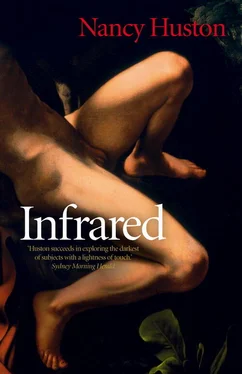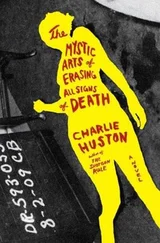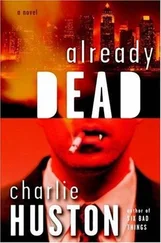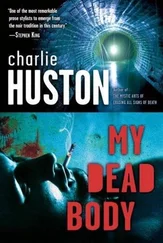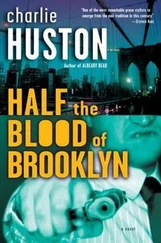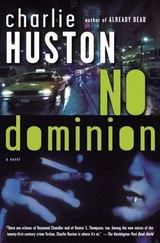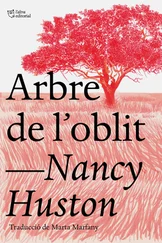‘Don’t they have TV in Italy?’ Aziz says at last. ‘Everybody’s talking about it.’
‘Of course they’ve got TV! But the Italians don’t care about France’s little problems.’
‘Little problems? You think this is a little problem?’
‘No, I think it’s a big problem, but that’s because I’m French. Maybe they’ll mention it on the news tomorrow morning — I’ll look out for it. Meanwhile, how’s my man doing?’
‘He’s eating his heart away.’
‘Hey, love, why is that?’ (She doesn’t tell Aziz you can’t eat your heart away, only out.)
‘’Cause his lady’s a thousand miles away and his heart is wasted.’
‘So why doesn’t he play his lady a song on the guitar?’
‘Oh, Rena, this week will last a year! I can’t help imagining things…’
‘Seriously…get your guitar and sing me a lullaby. I need it.’
‘Why? Are the old folks giving you a hard time of it?’ ‘Not exactly, but…Oh, please, Aziz…Sing to me.’ ‘All right, hold on…’
Before long she hears chords being strummed, before long she hears her beloved Aziz singing songs that revive and enhance the folktales his mother Aicha told him as a child, in Arabic, a language that to Rena’s ears is as sensuous as it is opaque, before long her cheeks are bathed in tears, before long she thanks Aziz in a low voice and before long she is sound asleep.
‘I see the divineness in ordinary things.’
Pietà
Two young adults, a brother and a sister. They’re in some foreign country — Israel, perhaps — where the political tension is palpable and intimidating. Two circles have been drawn on the ground, one for believers, the other for non-believers. Saying he’s a believer, the boy walks over to stand inside that circle. The girl announces that she believes only in her love for her brother. To punish her, the authorities give her a gun and order her to kill him. As he slumps lifeless to the ground, her brother falls into the circle of non-believers.
No idea why my brain would suggest that version of my relationship with Rowan.
Still in bed, Rena grabs the remote control and surfs channels for a while — but there are only half a dozen of them, all in Italian, and she learns nothing of what’s been going on in the projects around Paris.
When she knocks at the door to Room 23, Ingrid, still in her nightgown, sticks out her head and whispers to her that Simon spent most of the night reading Galileo’s Daughter and didn’t get to sleep until about an hour ago. It would probably be best for Rena to do some visiting by herself, and for them to meet up at noon. Where? The Ponte Vecchio? Right.
Filled with evil delight at this new prospect of freedom, Rena runs all the way to the Piazza del Duomo, enters the Museum of the Works of Santa Maria dei Fiori, buys a ticket and draws up short, heart thumping, in front of Michelangelo’s Pietà.
A sign explains that this actually isn’t a Pietà but a Descent from the Cross, and that the old man standing behind Christ’s body — bearded, hooded, his face twisted in pain — is actually not Nicodemus but the artist himself. ‘Aged eighty at the time,’ the sign goes on, ‘suffering from increasingly acute bouts of depression, Michelangelo was obsessed with death; the statue was meant to decorate his tomb.’
Oh, all these moping, miserable men, Rena sighs. Jesus, Nicodemus, Michelangelo, my dad…If only I could pick them up and bounce them on my knees! ‘Come to me, one and all!’ Rocking them and singing to them… Lullaby and good-night, With old age bedight… La, la, la, I’d hum and croon to them, time is but a lullaby…Mary knew this well, having held her son on her lap first as a baby, then as a corpse…But men insist on pursuing lofty goals. Each wants to make his mark — God by creating the world, Jesus by saving it, Nicodemus by carrying Christ’s dead body, Michelangelo by sculpting the whole mess, my father by understanding it. They all try so hard! None will achieve his goal. Instead of complying with their wishes, reality resists. Buonarotti worked on this statue for eight years and winded up hating it. The poor-quality marble gave off sparks when his chisel bit into it. Furious, Buonarotti struck out at his creation, mutilated it, and turned away. God, too — strikes out, mutilates, turns away. My father too — strikes out, mutilates, turns away.
Subra laughs in appreciation.
Seriously, insists Rena. Michelangelo and Simon Greenblatt have all sorts of things in common. Grand ambitions, high hopes, woefully inadequate accomplishments, self-castigation. Indifference towards food, sleep, and clothing. Refusal to take care of their bodies. Fits of anger and despair. Unstinting generosity. My father could have echoed each and every word of the artist’s poem:
Woe! Woe is me!
In all my past I can find Not a day that belongs to me!
Oh! Above all, I pray Not to return to myself!
Before he died, Buonarotti burned all the drawings, sketches, cartoons and poems that betrayed his fumbling and uncertainty; my father will probably do the same with his own ‘scribblings’. Only difference: however much he wept and lamented (‘Painting and sculpture have been my downfall’) Buonarotti was sufficiently arrogant — or vulgar? — to leave a few rough drafts lying around for terrestrial judgment. Pietà, Moses, David, Sistine Chapel, Capitol Square, Night, Day, Slaves, Last Judgment, Dome of Saint Paul, and so forth. Not my Dad. Oh, no, not that! Either wait for the right moment — the ripening, the glorious culmination, or…nothing.
So…nothing, echoes Subra with a sigh.
‘After Michelangelo’s death,’ the sign concludes, ‘this statue was completed by a certain Tiberio Calcagni. He added a Mary Magdalene to conceal the mutilation.’ Who — oh, who will come to complete my father’s absence-of-works?
Never have I been impressed by great men, or considered they were a species unto themselves.
Maybe, whispers Subra, because so many men who were powerful in the outside world turned out to be powerless in your bed?
True, Rena agrees. Yes — a fact to be stated without the least mockery or bitterness. In fact it’s rather moving when a man wants to make love to you and can’t. The child is there at once. And I don’t mean only older men — no, I mean men in their prime, who block, stress, seize up, freak out and freeze. It happens all the time. I’ve known at least as many too slow to start as too fast to end.
Tell me, Subra says.
Kerstin and I were talking about it just the other day. ‘Men have so much less fun in bed than they claim,’ I said. ‘It’s tough for them,’ she nodded. ‘They’ve got so much responsibility in love-making — the whole thing rests on their…’ ‘Shoulders,’ I put in. ‘Ah, yes, those poor shoulders of theirs — so exposed, so vulnerable. They have to keep proving they’re up to par, and if they’re not…’ ‘If they’re not,’ Kerstin said, ‘they feel pathetic, ridiculous, unmanly…And if their lover takes advantage of their weakness to make fun of them, all they yearn for is the void.’ ‘Yeah,’ I nodded. ‘Times like that, there’s not much difference between homicide and suicide.’
Aziz, too, at first. It took him months to learn to give himself up to my caresses. His mother had done everything in her power to keep him from reaching manhood, including taking him to the Turkish baths with her until he was fourteen. ‘But madame,’ the cashier finally protested, ‘he’s not a child anymore. At fourteen, he should be going with the men.’ ‘Not at all, not at all,’ Aicha replied, pressing and squeezing him against her body, squashing his face between her breasts, ‘what are you talking about? He’s my baby — look, he’s still a little boy, my darling son!’ And so, week after week, Aziz found himself surrounded by frightening mountains of female flesh — blue-veined breasts with giant nipples that looked like repulsive brown suns, quivering marbled thighs and buttocks, stomachs whose rills and ripples jiggled at every step, bloated backs and necks dripping with henna…an experience all the more traumatising that these same bodies were ferociously concealed the rest of the time, hidden scalp to sole behind long dresses, scarves and veils, so that no one could glimpse as much as an ankle or a strand of hair…
Читать дальше
